第42章
But the question then emerges as to whether other powers have the right to form themselves into an alliance in behalf of such a dethroned monarch merely in order not to leave the crime committed by the people unavenged, or to do away with it as a scandal to all the states; and whether they are therefore justified and called upon to restore by force to another state a formerly existing constitution that has been removed by a revolution.The discussion of this question, however, does not belong to this department of public right, but to the following section, concerning the right of nations.
B.Land Rights.Secular and Church Lands, Rights of Taxation;Finance; Police; Inspection.
Is the sovereign, viewed as embodying the legislative power, to be regarded as the supreme proprietor of the soil, or only as the highest ruler of the people by the laws? As the soil is the supreme condition under which it is alone possible to have external things as one's own, its possible possession and use constitute the first acquirable basis of external right.Hence it is that all such rights must be derived from the sovereign as overlord and paramount superior of the soil, or, as it may be better put, as the supreme proprietor of the land (dominus territorii).The people, as forming the mass of the subjects, belong to the sovereign as a people; not in the sense of his being their proprietor in the way of real right, but as their supreme commander or chief in the way of personal right.This supreme proprietorship, however, is only an idea of the civil constitution, objectified to represent, in accordance with juridical conceptions, the necessary union of the private property of all the people under a public universal possessor.The relation is so represented in order that it may form a basis for the determination of particular rights in property.It does not proceed, therefore, upon the principle of mere aggregation, which advances empirically from the parts to the whole, but from the necessary formal principle of a division of the soil according to conceptions of right.
In accordance with this principle, the supreme universal proprietor cannot have any private property in any part of the soil; for otherwise he would make himself a private person.Private property in the soil belongs only to the people, taken distributively and not collectively; from which condition, however, a nomadic people must be excepted as having no private property at all in the soil.The supreme proprietor accordingly ought not to hold private estates, either for private use or for the support of the court.For, as it would depend upon his own pleasure how far these should extend, the state would be in danger of seeing all property in the land taken into the hands of the government, and all the subjects treated as bondsmen of the soil (glebae adscripti).As possessors only of what was the private property of another, they might thus be deprived of all freedom and regarded as serfs or slaves.Of the supreme proprietor of the land, it may be said that he possesses nothing as his own, except himself; for if he possessed things in the state alongside of others, dispute and litigation would be possible with these others regarding those things, and there would be no independent judge to settle the cause.But it may also be said that he possesses everything; for he has the supreme right of sovereignty over the whole people, to whom all external things severally (divisim) belong; and as such he assigns distributively to every one what is to be his.
Hence there cannot be any corporation in the state, nor any class or order, that as proprietors can transmit the land for a sole exclusive use to the following generations for all time (ad infinitum), according to certain fixed statutes.The state may annul and abrogate all such statutes at any time, only under the condition of indemnifying survivors for their interests.The order of knights, constituting the nobility regarded as a mere rank or class of specially titled individuals, as well as the order of the clergy, called the church, are both subject to this relation.They can never be entitled by any hereditary privileges with which they may be favoured, to acquire an absolute property in the soil transmissible to their successors.They can only acquire the use of such property for the time being.If public opinion has ceased, on account of other arrangements, to impel the state to protect itself from negligence in the national defence by appeal to the military honour of the knightly order, the estates granted on that condition may be recalled.
And, in like manner, the church lands or spiritualities may be reclaimed by the state without scruple, if public opinion has ceased to impel the members of the state to maintain masses for the souls of the dead, prayers for the living, and a multitude of clergy, as means to protect themselves from eternal fire.But in both cases, the condition of indemnifying existing interests must be observed.
Those who in this connection fall under the movement of reform are not entitled to complain that their property is taken from them; for the foundation of their previous possession lay only in the opinion of the people, and it can be valid only so long as this opinion lasts.As soon as this public opinion in favour of such institutions dies out, or is even extinguished in the judgement of those who have the greatest claim by their acknowledged merit to lead and represent it, the putative proprietorship in question must cease, as if by a public appeal made regarding it to the state (a rege male informato ad regem melius informandum).